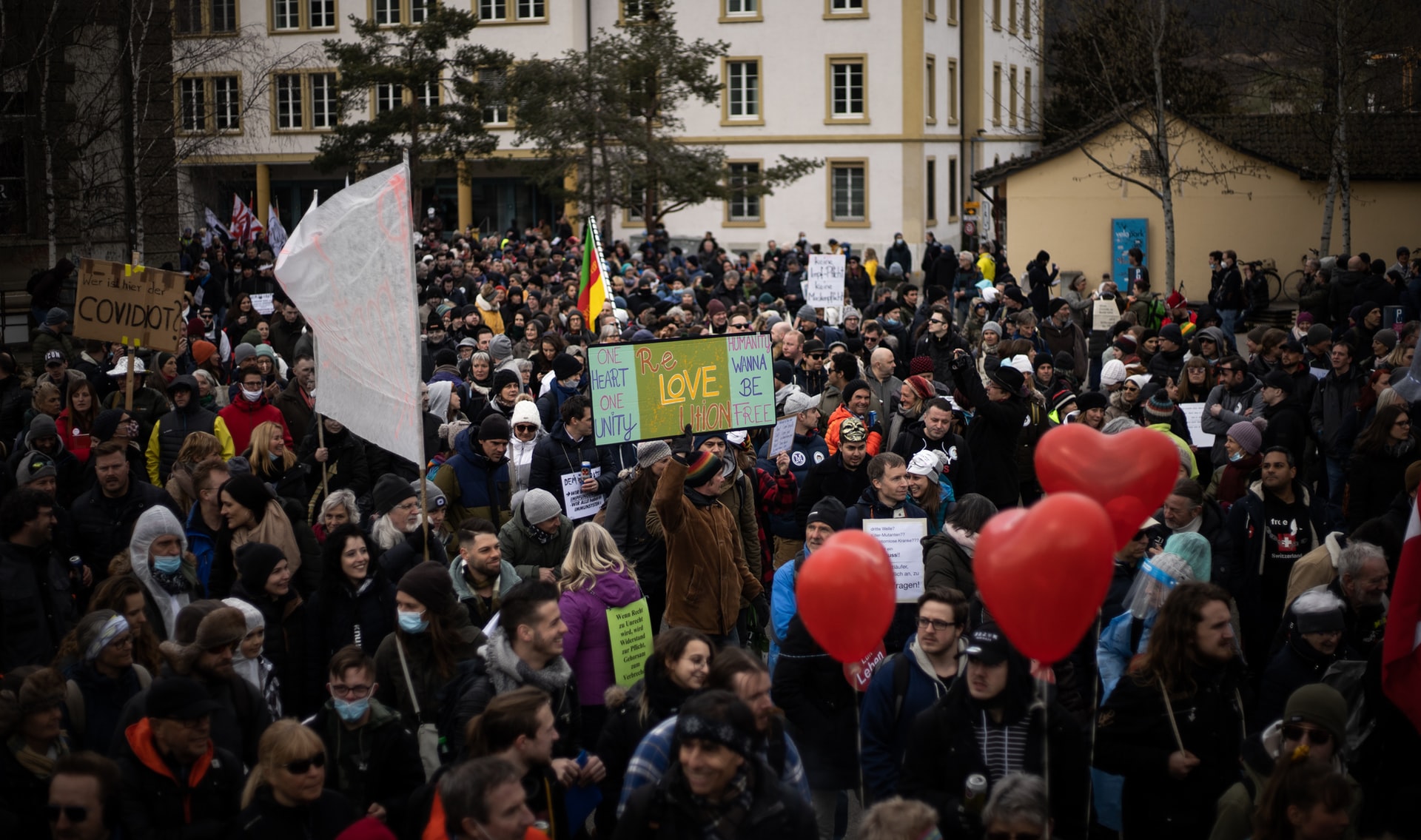Infringing Rights to Defy COVID
Despite the rapid advances made in all spheres, COVID-19 took the world by surprise. It was probably as much a shock this time around as it perhaps was in 1918, when the Spanish Flu had struck.
While initial lockdowns were met with compliance and residents followed government regulations carefully, the recent past has seen several protests. Canada is currently amid such demonstrations. Its capital city Ottawa’s downtown area was closed off by protestors for over a week. In the US particularly, there was uproar about wearing face masks in public. Such regulations were considered by large sections to be an infringement on their constitutional rights.
Is a pandemic sufficient cause to hamper people’s freedoms in democracies? Eating out, attending sports gatherings or simply walking the streets of towns demand we are masked, and often we must prove we have been vaccinated before joining an event. Discrimination follows those who have no proof – is this democratic? Can we stamp out COVID by permitting full democratic freedoms?
Horasis is organizing the Horasis USA Meeting on 04 March 2022 to examine and evaluate such issues. The one-day virtual event will see participation from a diverse range of people, spanning members of governments, businesses, academia, and the media. The goal is to deliberate on pressing issues that undermine progress and arrive at actionable solutions that can ensure shared prosperity.
Divided Opinions
An unfortunate trend is the overstocking of vaccines in developed economies. At the same time, the sentiment that mandatory vaccine or masking protocols are infringing on citizens’ personal freedoms, also run high in these higher income countries. Several emerging economies, meanwhile, have been unable to secure adequate doses for their citizens. Likewise, these demographics are generally not averse to being inoculated.
Violent protests broke out in Austria, Croatia, Belgium, and Italy in November 2021. Their respective governments had announced tightened COVID-19 measures to stem the rise in caseloads. It then became necessary for law enforcement agencies to deploy riot police to deescalate tensions.
However, what is surprising is the fact that, across spheres, past events are analyzed to derive a better understanding of how they played out, and their impacts on people. Past events provide insights or showcase trends that can be used to make current processes more efficient or help safeguard against disease and untimely deaths. Medical science, in particular, has made rapid progress by building on research and findings from across the centuries. Yet, past events seem to be overlooked by a large subset who firmly believe that pandemic protocols are a threat to their constitutional freedoms.
The small pox vaccine, for instance, was also met with skepticism when it was initially introduced. But thanks to efforts of over 150 years, the medical community was able to successfully eradicate this disease.
Can COVID-19 Be Eliminated While Permitting Full Democratic Freedoms?
British Prime Minister Boris Johnson announced, in January 2022, that England would end all pandemic related restrictions. This implied that COVID-19 passports would not be necessary although businesses could enforce it for their patrons if they chose to. Additionally, wearing masks in public would no longer be mandatory.
Prime Minister Johnson also called on England’s citizens to exercise their good judgment. He urged unvaccinated residents to rethink their decision, called on infected people to isolate themselves and employers are no longer required to follow work from home guidelines. In sum, the prime minister said, “we must learn to live with COVID in the same way we live with flu”.
England’s example will be one to follow for policymakers worldwide; it has restored all democratic freedoms. Decision making related to personal health is now entirely entrusted upon its people. The efficacy of this route, however, remains to be seen. In the days following the announcement, there was a spike in caseload. In the first week of February 2022, however, a plateau was observed with an average of 259 daily cases.
Can a One-Size-Fits-All Approach Work?
In May 2021, when several parts of the world were in the thick of their second wave, President Biden announced “… the Centers for Disease Control and Prevention — the CDC — announced that they are no longer recommending that fully vaccinated people need wear masks.” But later in the year, a mask mandate was once again issued to address a sudden spike in caseload.
What must be highlighted is the fact that policymakers are not necessarily attempting to infringe on individuals’ rights. Rather, they have been enacting policies that are befitting of a particular time, specific to the problem at hand.
There is no doubt a sense of ‘pandemic fatigue’ has set in. People across the world want to return to their sense of normal as they knew it prior to the pandemic’s onset. But to restore normalcy, certain pandemic protocols will have to become a part and parcel of daily life. There is no alternative yet.
Photo Caption: A big protest in Liestal, Switzerland against the corona pandemic measurements.



